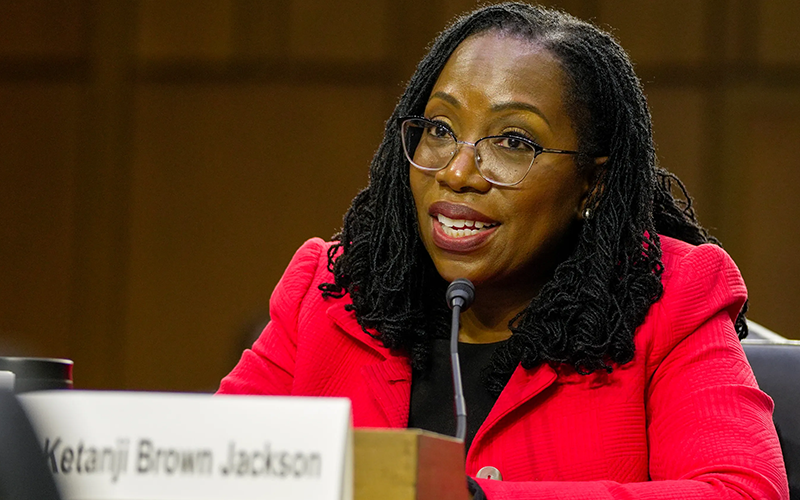On June 30, Ketanji Brown Jackson was sworn in as the newest member of the U.S. Supreme Court and, in the years to come, will inevitably be asked to rule on issues affecting the First Amendment rights of public employees.
When this happens, it will be instructive to see how she deals with her bias in favor of government employee unions.
In all, Justice Jackson served as a federal judge for nearly a decade before taking her seat on the Supreme Court. In 2012, Jackson was nominated by former President Barack Obama to serve as a U.S. district judge in Washington, D.C.
In 2021, President Joe Biden nominated Jackson to serve on the U.S. Court of Appeals for the D.C. Circuit. Jackson was confirmed by the Senate and served as a federal appellate judge until her recent elevation to the Supreme Court.
While Justice Jackson appears to be a well-qualified judge, a review of her tenure as a federal judge shows she has a soft spot for public-sector unions. Many of Jackson’s opinions involved Big Labor, but two cases stand out as examples of when she took strong positions in favor of government unions.
The first is American Federation of Government Employees (AFL-CIO) v. Trump.
In the summer of 2018, then-district judge Jackson ruled that several Trump administration executive orders violated a congressional statute. In her ruling, Jackson invalidated portions of three different executive orders the Trump administration claimed were designed to help executive agencies develop efficient, effective, and cost-reducing collective bargaining agreements.
Jackson determined the orders undermined federal employees’ rights to bargain collectively.
However, Jackson’s opinion was later reversed by the D.C. Circuit Court of Appeals. The D.C. Circuit concluded that Jackson did not have the authority to address the merits of the executive orders. The D.C. Circuit said the Federal Labor Relations Board was the proper body to settle the dispute and that Jackson should have dismissed the case.
The second case is American Federation of Government Employees (AFL-CIO) v. Federal Labor Relations Authority.
In 2020, the Federal Labor Relations Authority (FLRA) adopted a new standard for when collective bargaining was required, and public-sector unions challenged this new standard. The FLRA argued that collective bargaining should only be required if a workplace change had a substantial impact on a condition of employment, but the labor unions argued collective bargaining was required for any workplace changes having more than a trivial effect on working conditions.
As an appellate judge on the D.C. Circuit, Jackson sided with the labor unions and ruled that the FLRA’s attempt to allow employers to make minor workplace changes without involving collective bargaining was “not sufficiently reasoned” and was therefore “arbitrary and capricious.”
Based on her record, it can be safely assumed that Justice Jackson will have a similar warm, fuzzy feeling for unions in future cases, possibly to the detriment of public employees.
This issue reveals a potential weakness in the confirmation process for Supreme Court nominees.
Issues involving the First Amendment rights of public employees and public-sector unions don’t typically demand much attention during judicial confirmation hearings, which usually focus on intense culture war issues such as abortion and gun control, for example.
But these aren’t the only important issues that new Supreme Court Justices will be asked to rule on. More hearing time should be spent on issues that are certain to appear before a justice, even if they don’t get much attention in the media.









